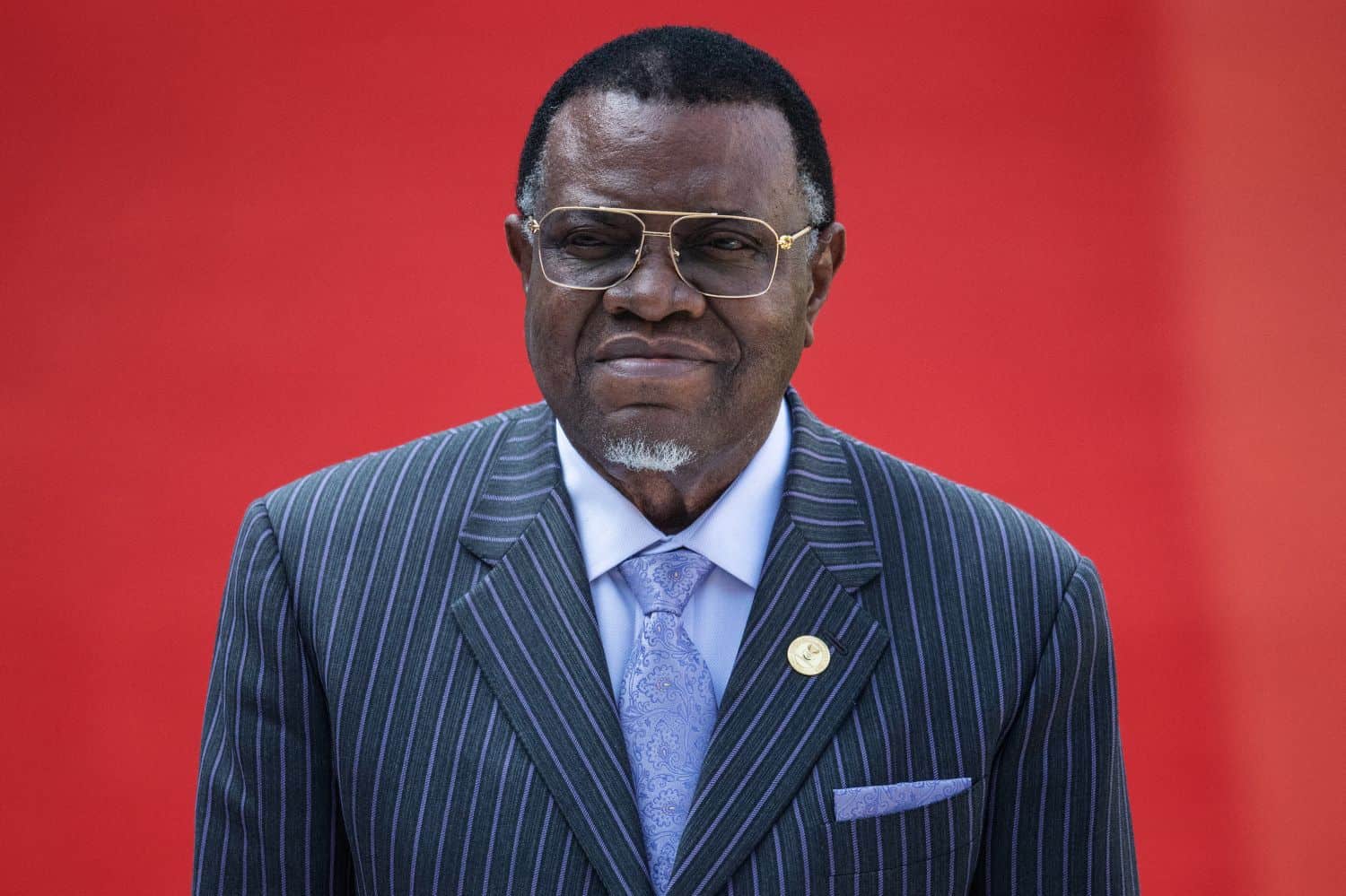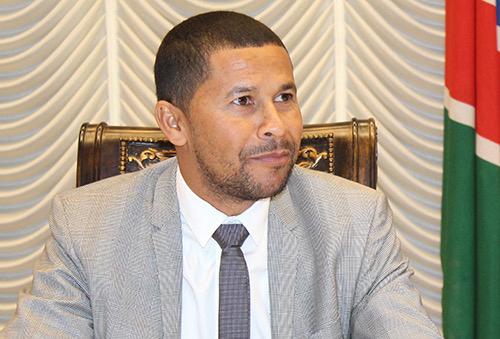Hage Geingob is a name synonymous with leadership, resilience, and progress in Namibia. As the third president of the Republic of Namibia, Geingob has played a pivotal role in shaping the country’s trajectory. His vision for a united, inclusive, and prosperous Namibia has earned him widespread recognition, both domestically and internationally. This article explores the life, achievements, and leadership of Hage Geingob, emphasizing his transformative impact on Namibia.
Early Life and Education
Hage Gottfried Geingob was born on August 3, 1941, in Otjihaenamaparero, in the Otjozondjupa Region of Namibia. Growing up in a rural setting, Geingob experienced the harsh realities of apartheid and colonial rule. These experiences fueled his passion for social justice and equality, shaping his future as a leader.
Geingob pursued his education with determination, earning a Bachelor’s degree in Political Science from Fordham University in the United States and a Master’s degree in International Relations from The New School in New York. His academic background laid the foundation for his political and diplomatic career.
The Liberation Struggle
Hage Geingob’s political journey began during Namibia’s liberation struggle. He joined the South West Africa People’s Organization (SWAPO) in the 1960s and became an influential figure in the movement.
In 1964, Geingob was selected to represent SWAPO at the United Nations. As Namibia’s voice on the global stage, he tirelessly advocated for the country’s independence from South African rule. His diplomatic efforts and ability to build international alliances significantly bolstered the fight for liberation.
Post-Independence Leadership
Following Namibia’s independence in 1990, Hage Geingob took on key leadership roles in the newly formed government. As the first Prime Minister of Namibia (1990–2002), he was instrumental in establishing the country’s governance structures and policies.
Key Contributions as Prime Minister:
- Drafting Namibia’s Constitution: Geingob chaired the Constituent Assembly that crafted Namibia’s Constitution, which is widely regarded as one of the most progressive in Africa.
- Strengthening Governance: He played a pivotal role in setting up Namibia’s administrative framework and fostering transparency and accountability.
- Economic Development: Geingob prioritized economic stability, focusing on policies to attract investment and create jobs.
After a brief hiatus, Geingob returned to serve as Prime Minister again from 2012 to 2015.
The Presidency: A Vision for Transformation
In 2015, Hage Geingob became Namibia’s third president, succeeding Hifikepunye Pohamba. His presidency has been marked by a commitment to economic transformation, social justice, and national unity.
Key Priorities as President:
- Economic Growth and Diversification
Geingob’s administration has focused on reducing Namibia’s reliance on mining by diversifying the economy. Initiatives to promote agriculture, tourism, renewable energy, and technology have been central to his vision. - Eradicating Poverty and Inequality
Under the Harambee Prosperity Plan, Geingob has implemented policies aimed at eradicating poverty and reducing inequality. These include social safety nets, affordable housing projects, and support for small and medium-sized enterprises (SMEs). - Youth Empowerment
Recognizing the potential of Namibia’s youth, Geingob has championed programs to improve education, vocational training, and job creation. His administration has also prioritized digital transformation to prepare young Namibians for the global economy. - Fighting Corruption
Geingob has taken a firm stance against corruption, emphasizing transparency and accountability. His government has introduced anti-corruption measures, including whistleblower protections and reforms in public procurement processes. - Climate Action and Sustainability
Namibia, under Geingob’s leadership, has emerged as a leader in environmental conservation and renewable energy. Initiatives such as the Green Hydrogen Project aim to position Namibia as a global player in sustainable energy production.
Challenges and Resilience
Geingob’s presidency has not been without challenges. Namibia has faced economic difficulties due to global downturns, droughts, and the COVID-19 pandemic. However, Geingob’s pragmatic approach and focus on long-term solutions have enabled the country to navigate these obstacles.
His emphasis on dialogue and consensus-building has also helped maintain political stability and social cohesion during challenging times.
Achievements and Legacy
Hage Geingob’s leadership has left an indelible mark on Namibia. Some of his notable achievements include:
- Harambee Prosperity Plan: A comprehensive framework for socio-economic development, addressing key issues such as poverty, housing, and governance.
- Infrastructure Development: Investments in roads, healthcare facilities, and schools have improved living standards across Namibia.
- International Recognition: Geingob’s efforts in promoting peace, democracy, and sustainable development have earned him accolades on the global stage.
A Visionary for Africa’s Future
Beyond Namibia, Hage Geingob has emerged as a voice for Africa. He has advocated for African unity, regional integration, and equitable global partnerships. His leadership in organizations such as the African Union reflects his commitment to the continent’s progress.
Personal Life and Leadership Style
Hage Geingob is known for his approachable and pragmatic leadership style. He values inclusivity, often engaging with citizens through town hall meetings and social media. His commitment to transparency and accountability has resonated with many Namibians.
Geingob is also a family man, often sharing insights about his personal life and values. His humility and dedication to public service have endeared him to many.
Hage Geingob’s journey from a young boy in rural Namibia to the presidency is a testament to his vision, resilience, and unwavering commitment to his country. As Namibia’s third president, he has championed economic transformation, social justice, and sustainability, leaving a legacy of progress and hope.
Geingob’s leadership has not only transformed Namibia but also positioned it as a beacon of stability and innovation in Africa. His story is one of perseverance, vision, and the enduring power of leadership to drive change.













